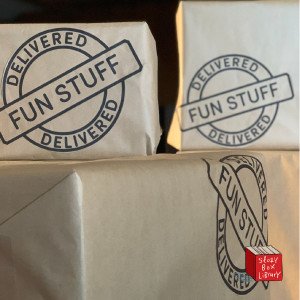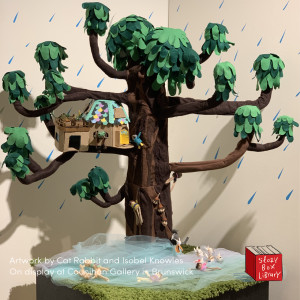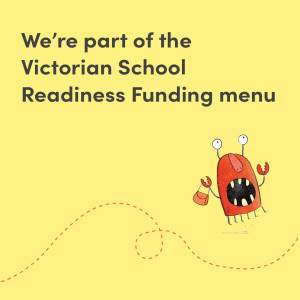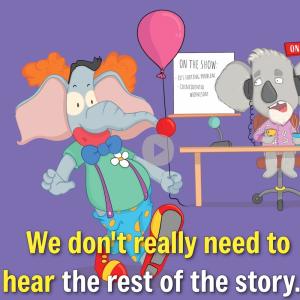Our thoughts on Lauren Dubois' book, You Will (Probably) Survive
31 Jul 2019
When we filmed with Lauren Dubois at the National Library of Australia, she told us a bit about her new book, You Will (Probably) Survive, which delves into the joyous, the maddening and the hilarious moments of motherhood. We nabbed a copy when we got back to Melbourne and had our only team member without kids take a read.
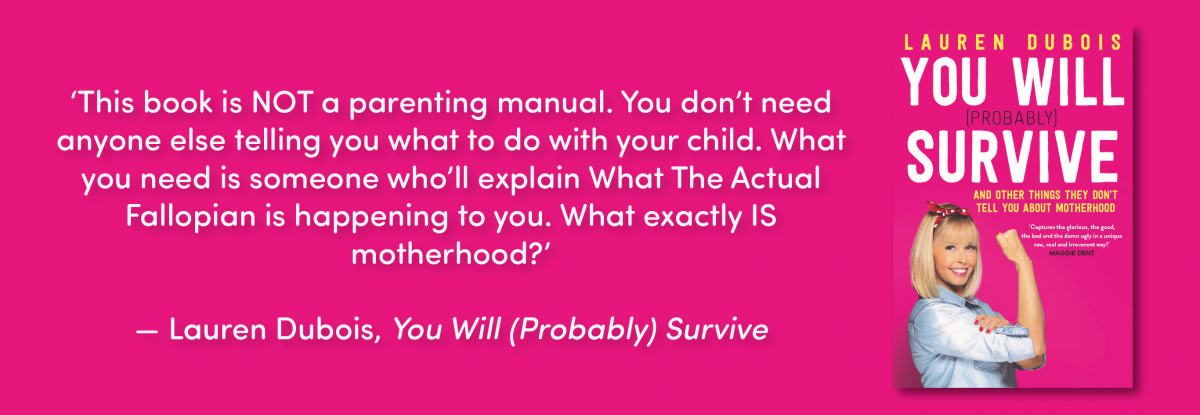
As I read my way through Lauren Dubois' You Will (Probably) Survive, I found myself hopingfor the sake of mothers everywherethat none of it was true. Having never experienced what I now know to be the horrors of childbirth (and still living in self-centric twenties), You Will (Probably) Survive has taught me a greater respect for the mums I work with and given me the overwhelming need to call my own mother to apologise.
It's a rough start to the book with Part one: Pregnancy or What's happening to me?'. With bitesized descriptions of what happens to every part of a woman's body during pregnancy (terrifying), Lauren states that the special time will leave a mark, which she goes on to describe as feeling like you took a watermelon, scooped out the insides, mushed those insides with half a bottle of vodka, froze it, blended it, put it back in the watermelon skin with a bunch of other fruit and then ran over the watermelon with your car'.
Lovely. 25 pages in and the illusion that pregnancy is a magical time has been broken.
But it's not all terrifying. Lauren makes sure to add in some of the nice parts of pregnancy, tooThe Tummy Table, the sudden realisation that women create life (the I'm magic' moment), baby brain as an excuse to be lazy and forgetful, and the knowledge that you will survive. Survive even if you feel like you don't know what you're doing, even when your earlobes feel pregnant and even when Google doesn't solve every problem.
We were warned early on in the book that new mums and mums-to-be should be prepared for a totally new kind of search history. And she goes on to tell us exactly what those searches might look like, beyond pregnancy and into the weeks with a newborn and what might feel like a lifetime with a toddler. The weird things new mums might Google are mixed in with the description of lack of sleep, and advice to hand child over and go and hide in the pantry so you can eat biscuits in silence' when your partner comes home.
There are stories of Lauren's son's answer to the question What does your mummy look like?' being A rectangle', the first time the baby is misplaced in the home, the first smile, the first laugh, and the strangely comforting realisation that it sucks' sometimes and that no one really has that Pinterest-worthy playroom' (there's a pile of plastic junk just outside of the photo).
There's the magic of a child's first word, interspersed with the things Lauren's children have said, which can't be stated here, but can be read in her book.
And there's the greatest joy of toddlers: seeing the world through their eyes for the first time. The first taste of ice cream, the first concert, the first time they understand that some people speak a different language to them The delight over a rainbow. They're the sort of moments that Lauren says makes all the hard parts worth it'.
The fun, heartwarming stories are almost enough to make me forget the horrors scattered throughout You Will (Probably) Survive.
Almost, but not quite.


